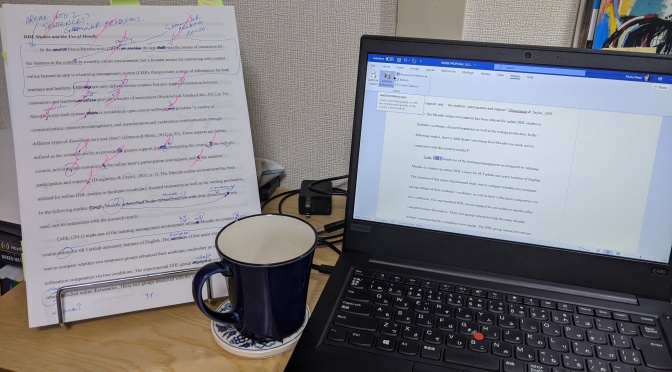Hello all,
This poor blog has been neglected for so long. I only blame myself, however it is a matter of priorities of course. As of this post I have passed my dissertation defense, which took place on February 18th of this year. It was indeed a “trial by fire” but I passed, and so my Ph.D degree is almost in my grasp.




Now I am in the revisions stage of the process. This is where the committee that reviewed your dissertation needs to go through with it with a fine toothed comb and make suggestions on things like format issues, confusing language ( and there is a ton of that), and issues with data analysis. At this point I look at the list of suggestions, address that issue in my manuscript, and write “done” after each item once it is complete.
Once this is finished, I can then submit the final product to the university, and that is it. Knowing that is going to happen makes me realize the other meaning of “revision” which to me is thinking of the next step and taking my life’s direction to bigger and bolder things. Having a newer and brighter vision. To be honest, I think language teaching is only one facet of this. My new goal is to get back into the swing of things with research, and publishing again because this degree was the priority for so long. I also really want to get back into art as well, though how that manifests, is the challenge.
I will keep you posted though.
Be well,
Peter



